Legality of Swiss marriage law questioned
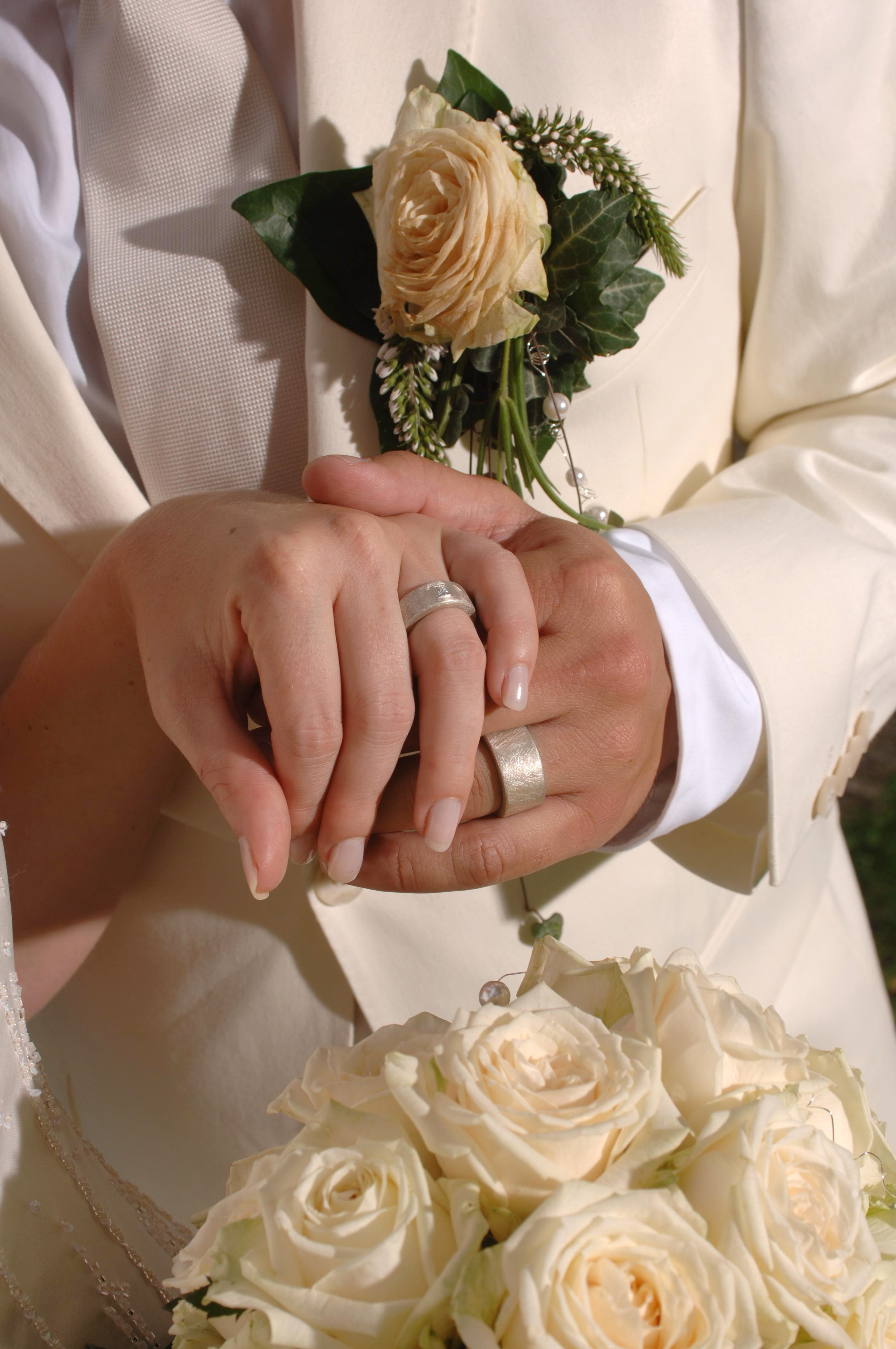
A new law that requires foreign nationals have a valid visa before they can marry in Switzerland has been criticised as a breach of human rights.
The law, which came into effect on January 1, also requires registrars to inform migration authorities when a marriage applicant does not have a valid visa.
Initiated by the rightwing Swiss People’s Party, the law was designed to restrict the possibility of marriages of “convenience” – people marrying to shore up their visa circumstances and subsequently apply to bring their families to Switzerland.
Of some 42,000 marriages celebrated in Switzerland in 2009, just under half – 20,380 – involved at least one foreign national, according to figures from the Federal Statistics Office.
In 2004 the Federal Civil Status Office estimated that between 500 and 1,000 marriages – three per cent – were false.
Secretary-general of the Swiss People’s Party, Martin Baltisser, told swissinfo.ch the party had felt it was necessary to adapt the marriage law to limit the possibility of abuse.
“There was a lot of abuse, a lot of ‘virtual marriages’ by people who only did it to obtain a Swiss visa,” Baltisser told swissinfo.ch.
Exclusion
Critics of the Swiss law say that it breaches human rights because it excludes an entire category of people from the right to marry.
In a ruling in December, the European Court of Human Rights sanctioned Britain for legislation which it said “imposed a blanket prohibition on the exercise of the right to marry on all persons in a specified category regardless of whether the proposed marriage was one of convenience or not”.
Professor of law at Lausanne University Philippe Meier told swissinfo.ch that this ruling could also be applied to the Swiss marriage law.
“The new Swiss rule is based on the principal that all foreigners without a visa want to make a marriage of convenience,” Meier said.
“The European Court considers that such a rule… creates a discrimination against an entire category of foreigners, even though these people could very well want a real marriage.”
Michel Montini, a spokesman for the Civil Status Office said the ruling in the British case did not apply to the Swiss law.
He pointed out that the British were sanctioned because their law, which required the applicant have “a certificate of approval” to marry, imposed prohibitively high application fees and was discriminatory because it did not apply to couples wanting to marry in the Anglican Church.
“We have examined this decision and we think that our legislation is compatible with the European Convention of Human Rights, at least in terms of the application of the law that must be carried out by the authorities,” Montini told swissinfo.ch.
“Liberal” application
The new Swiss law is “not a question of proving a marriage of convenience” but about establishing if a person had the legal right to be in Switzerland, Montini said.
Couples concerned are given the opportunity to regularise their visa situation before outright refusal to marry by the authorities, said Montini. Migration authorities have the ability to deliver an “ad hoc” attestation legalising the applicant’s stay in Switzerland until the date of marriage.
“The application of this measure should be done in a liberal manner to ensure that we avoid arriving at a position where we prohibit a marriage in itself, which could be a breach of the European Convention on Human Rights,” Montini said.
Meier said that liberal interpretation of the law could prevent breaches of human rights, but also noted that exceptions have “absolutely no basis in the law” which is “extremely strict” and should be changed to provide legal certainty.
“I don’t think that the new measure places too many limits on marrying although it’s clear that it has probably now become more difficult,” conceded Baltisser.
Right to marry?
A couple with direct experience of wanting to marry in Switzerland say authorities went out of their way to prevent them from going ahead.
Swiss national Sarah and John of the Ivory Coast (not their real names) had been seeing each other for about 18 months when they decided to marry. John’s visa, although nearly expired, was valid when they first approached marriage authorities in October last year.
“At first they refused to even give us an appointment, they obviously didn’t believe we were serious,” Sarah told swissinfo.ch. “Finally the lawyer managed to get us an appointment on the last day of his visa.”
The couple say cantonal officials insisted John relinquish his passport – which has not been returned – before they would let them sign the marriage application papers.
Shortly afterwards, John was expelled from Switzerland and left for France in early December. When Sarah applied for the return of their documents she was told “that they wouldn’t have married us anyway because there was a new law coming into effect in January”.
Sarah dismisses the suggestion of a liberal interpretation as “lies in the first degree”.
“They play with the rules. They tell you something with a smile and next time they tell you something different,” she said.
John and Sarah married last month in France. According to the couple, Swiss authorities say John has to return to Ivory Coast to apply for a visa, which they say is impossible given current unrest in the country.
“You have the right to get married and live with whom you choose,” said Sarah. “When we got married it was because we wanted to live together, but how do we do that?”
Switzerland ratified the European Convention on Human Rights in 1974.
Article 12
Right to marry – Men and women of marriageable age have the right to marry and to found a family, according to the national laws governing the exercise of this right.
Article 14
Prohibition of Discrimination – The enjoyment of the rights and freedoms set forth in this Convention shall be secured without discrimination on any ground such as sex, race, colour, language, religion, political or other opinion, national or social origin, association with a national minority, property, birth or other status.
Article 98, al. 4
The fiancés who are not Swiss citizens must establish the legality of their status in Switzerland during the course of the preparatory procedures.
Article 99, al. 4
The Civil Status Office will communicate to the competent authority the identity of fiancés who have not established the legality of their stay in Switzerland.

In compliance with the JTI standards
More: SWI swissinfo.ch certified by the Journalism Trust Initiative
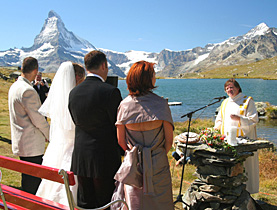
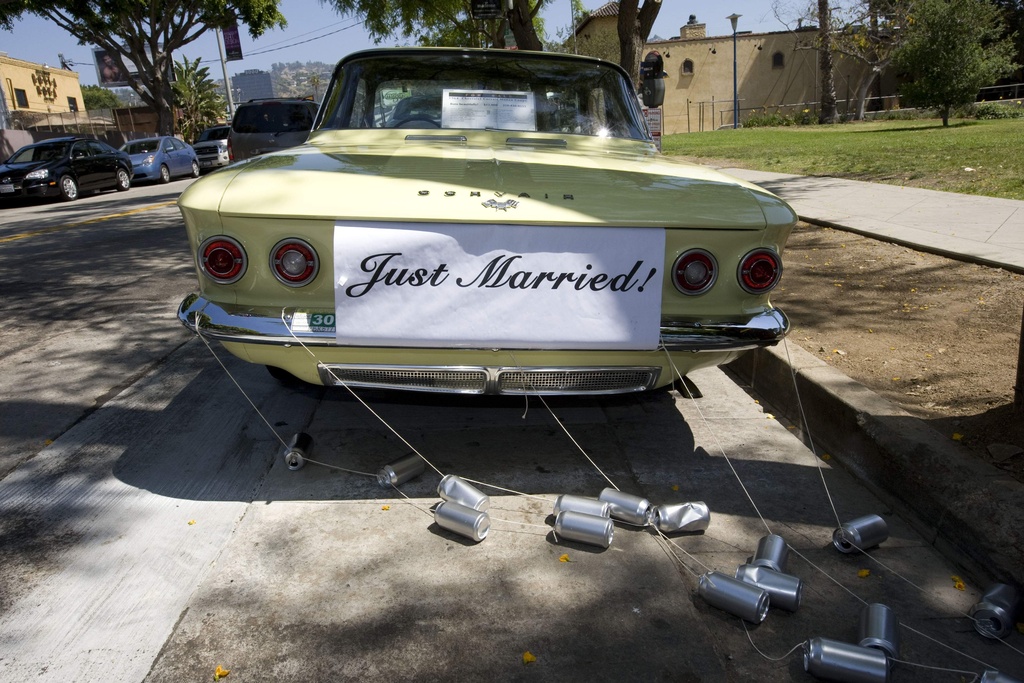
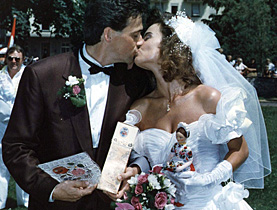
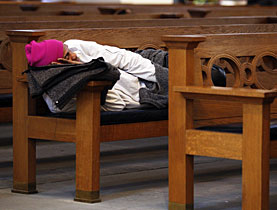

You can find an overview of ongoing debates with our journalists here. Please join us!
If you want to start a conversation about a topic raised in this article or want to report factual errors, email us at english@swissinfo.ch.